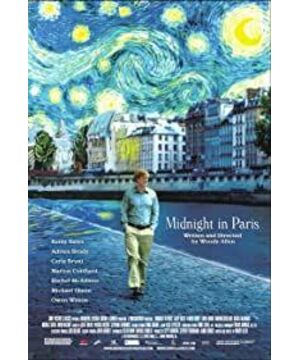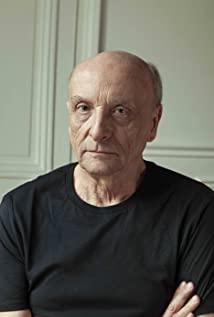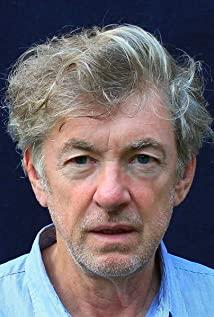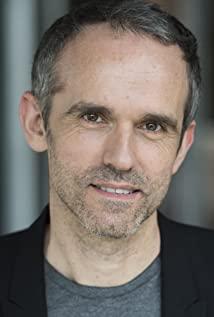In the film, the protagonist Jill and the professor Paul are a set of counterpoints. It can be said that Paul is another Jill, the former Jill, the Jill who can be admired by Ines. The former Jill was a Hollywood playwright, a social elite and a successful person, who could write blockbuster movie scripts and be recognized by the public. Now Jill is a writer, he longs for real, passionate creation, and wants to write a work that belongs to himself and expresses his life experience, instead of always writing those stylized fast food works that please the audience. . So he wanted to give up everything in Hollywood and start over in Paris. But Ines couldn't accept that Gill had "fallen" from a successful man to an obscure author, with whom he had numerous disputes.
Paul, on the other hand, was a well-known professor who gushed about his "scholarship" as they toured Parisian monuments together. Paul loves art on the surface, but in fact he has no awareness of art. He lacks passion for art, so those works of art cannot hit his soul. He cannot understand and perceive those works from the heart, and is only content to describe what he has learned from books. Professional knowledge, so, he and an "expert" who has a huge gap with art.
Paul is not only an expert in art, but also an expert in wine and dance, and the film makes three humorous mockings of Paul's "expert" status. Mila, as Rodin's wife, denies that when he is pointed out by the tour guide, and firmly maintains his inviolable authority. The second time is when Ines told Paul that Gill was writing literature, and Paul suggested that he could help Gill write a review to praise Gill's work and help Gill in "career", and he completely betrayed the principles of literary criticism. The third time was when he visited Picasso's paintings, he only described Picasso's paintings based on book knowledge, and coincidentally, after Gil happened to see Picasso create this painting during his travel the night before, his contemporaries criticized the painting. It was a failed attempt to paint a vulgar sexuality without showing the true charm of Picasso's lover. When Gill spoke out about Picasso's painting, others were stunned by Gill's "disrespect" to the artist.
The biggest difference between Jill and Paul is the passion, the passion for art, the Dionysian spirit in the artist. Balzac said: Great passions are as few as masterpieces. In the field of art, the artist is always accompanied by passion. And the film also explained the meaning of passion through Hemingway's words: "Their love has enough passion to drive death out of their heads." Such people are the heroes in Hemingway's mind who can overcome nothingness and death.
In Jill's world, "without Bacchus (the name of the god of wine), life would be uninteresting (Russell)", but in Ines' world, "with Bacchus, life would be uninteresting (Russell)" Dangerous (Russell)". Ines is well aware of the "danger" of Jill's departure from the "right way" of life, so she becomes more and more intolerable to Jill, and gradually favors Paul. So, in reality, Jill lost to Paul, but in art, Paul lost to Jill.
Paul is Jill's "old me". When people have passion, they will have a sense of tearing. They look forward to breaking away from this imperfect side to pursue that perfect other side. "Tear it out, throw him to the outside world, and make room for yourself to find the true desire in your heart, to find the poetic existence, the manifestation of the dream. In this way, Jill caught a glimpse of the other side of his heart at midnight, the poetic dream of the other side.
In the film, Woody Allen explores the issue of poetic dwelling. We always say that real life destroys our poetry, but after watching this film, we have to ask whether it is real life that destroys our poetry, or we destroy the poetry of real life.
The film unfolds this theme from two angles, a side-by-side comparison of Gil with Ines (including the middle class represented by Ines' parents), and Gil - the French art world of the early twentieth century - ten A longitudinal comparison of French art circles at the end of the ninth century.
In the horizontal comparison, the poetic question unfolds from the attitudes of Gil and Ines towards France. In the same Paris, what Gil feels is the Monet painting on the street and the lake, Ines thinks that it is just that Gil cannot be trusted hallucinations; Jill sees what Hemingway described as a "flowing feast" and future mother-in-law sees "blocked traffic"; Jill is struck by the haze of Paris in the rain, and Ines refuses to walk with him in the rain. It is worth mentioning that the image of rain has a return to its true meaning in many films, and the act of raining is always implicated in the intention of a successful middle-class person to strip away the cloak of civilization, such as the song in "Singing in the Rain". The male protagonist removes the gorgeous coat of "star" and sings and dances in the rain like a child; for example, the male No. 2 in "Instinct Reaction" removes the professional coat of "psychiatrist" to experience the original feeling of closeness to nature in the rain; In this film, Woody Allen repeatedly emphasized Paris in the "rain" and a walk in the rain. The film also ends with Jill walking in the rain with a girl who sells old Cole Porter records, which still has such meaning . Back to the original, life will have a poetic.
The film begins with a set of still shots showing the charming scenery of Paris, the beautiful street scenes are immersed in the lazy warm yellow tones, and I have seen some film critics criticize Woody Allen for beautifying Paris, especially those who have lived in Paris. People are more willing to describe what Paris actually looks like at length in film reviews. And this kind of evaluation just deviates from the poetic view that Woody Allen wants to express. Woody Allen doesn't shy away from the disappointments of Paris, it's just that in the eyes of Woody Allen (and Jill), Paris is so poetic. We can choose to see the world from the perspective of Jill and Woody Allen, or we can choose to see the world from the perspective of Ines and his parents.
Indeed, every photographer is a liar, he always disassembles a small piece of beauty from the imperfect world for us to enjoy, "immorally" hides most of the ugly, and when we see it with our own eyes The imperfect whole will always be disappointed. But Rodin's well-reported quote is actually an interpretation of a Woody Allen-like idea, that we should treat the world poetically, rather than demanding that the world be presented to us poetically.
In Vertical Comparison, Woody Allen explores this issue in more depth. The reason why Gill can travel back to the beginning of the 20th century is because of his nostalgic complex. He believes that the ideal era is the beginning of the 20th century. He believes that at that time, people were obsessed with real art and dedicated themselves to art, not as shallow as the current world. Impetuous and flashy. After he got acquainted with the "idol" in his mind, although he still fell in love with the talents of these artists, what the movie shows us is that in the "present" when these artists have not been settled by history, they are just some Ordinary people who are driven by passion and love art. The Fitzgeralds are involved in their love, hate and jealousy. Hemingway takes the trouble to emphasize the "tough guy" image in his heart. Picasso also has failed attempts and vulgar sentiments. , Dali rambled about the rhinoceros in his eyes, and Buñuel was upset because he couldn't find a suitable movie theme, and he had to rely on Jill from the future to help him guide him.
More ironically, Picasso's lover, Adriana, moved by the nostalgia portrayed in Gill's novel, told Gill that her ideal era was the art world of the late nineteenth century, when people were more sensitive and richer. poetry. If Jill's first time crossing can't fully highlight the theme of Woody Allen, the second time crossing makes this theme more obvious. Gill and Adriana traveled to the artistic circles of Traurec, Gauguin and others at the end of the 19th century. Gauguin talked about the emptiness and lack of imagination of the "current" world, and the ideal era in their hearts was the Renaissance. period.
After the second time crossing, Jill had a complete epiphany, and the past that later generations were infatuated with was not beautiful in the eyes of predecessors. Therefore, poetry is actually a kind of imagination, a romantic imagination of future generations to the untouchable previous generation, but the source of this imagination is that the previous generation of artists excavated poetic elements from their dissatisfied "present". assembled. Nostalgia does not allow us to find true poetry, nor does it allow us to dwell poetically in the present. Relying on the poetry presented by the previous generation of artists has certainly given us a great aesthetic experience, but the most important thing is to return to the truth and use our passionate heart to poetically treat our world.
The poster of the film is a summary of the film. The journey through time and space is actually a journey to find oneself. Traversing into one's own heart and igniting the passion in the heart, one can wander under Van Gogh's starry sky every midnight and form a poetic poem. dreamland.
View more about Midnight in Paris reviews











